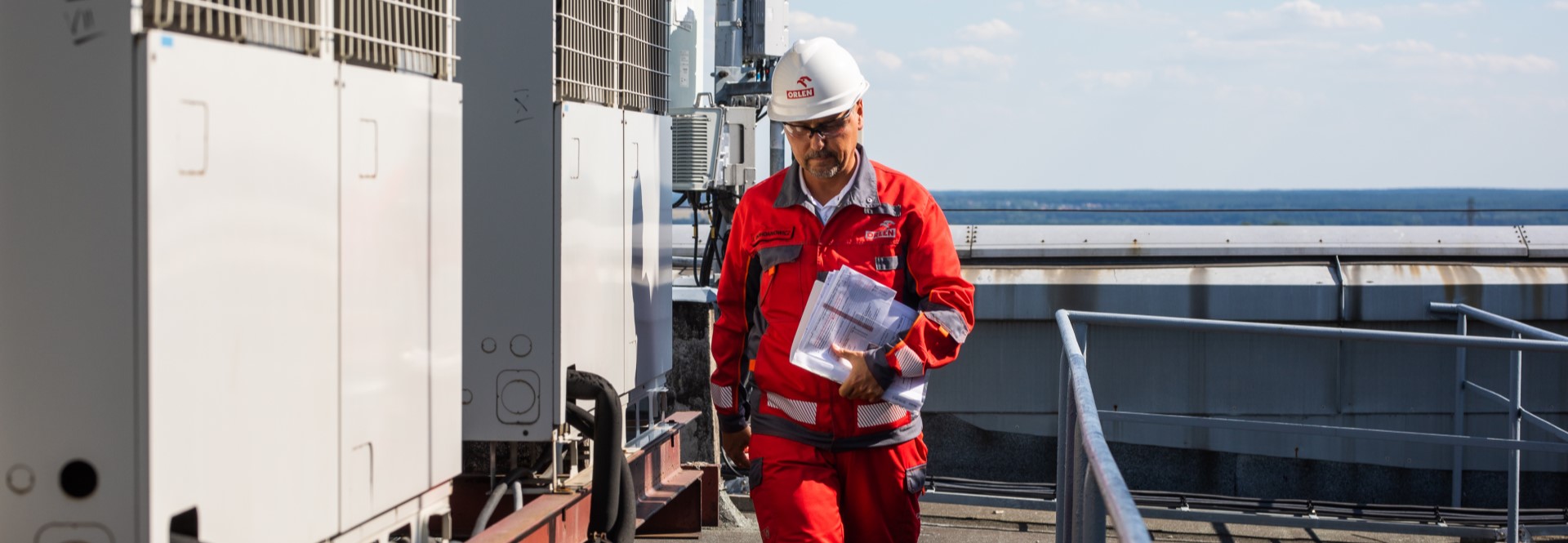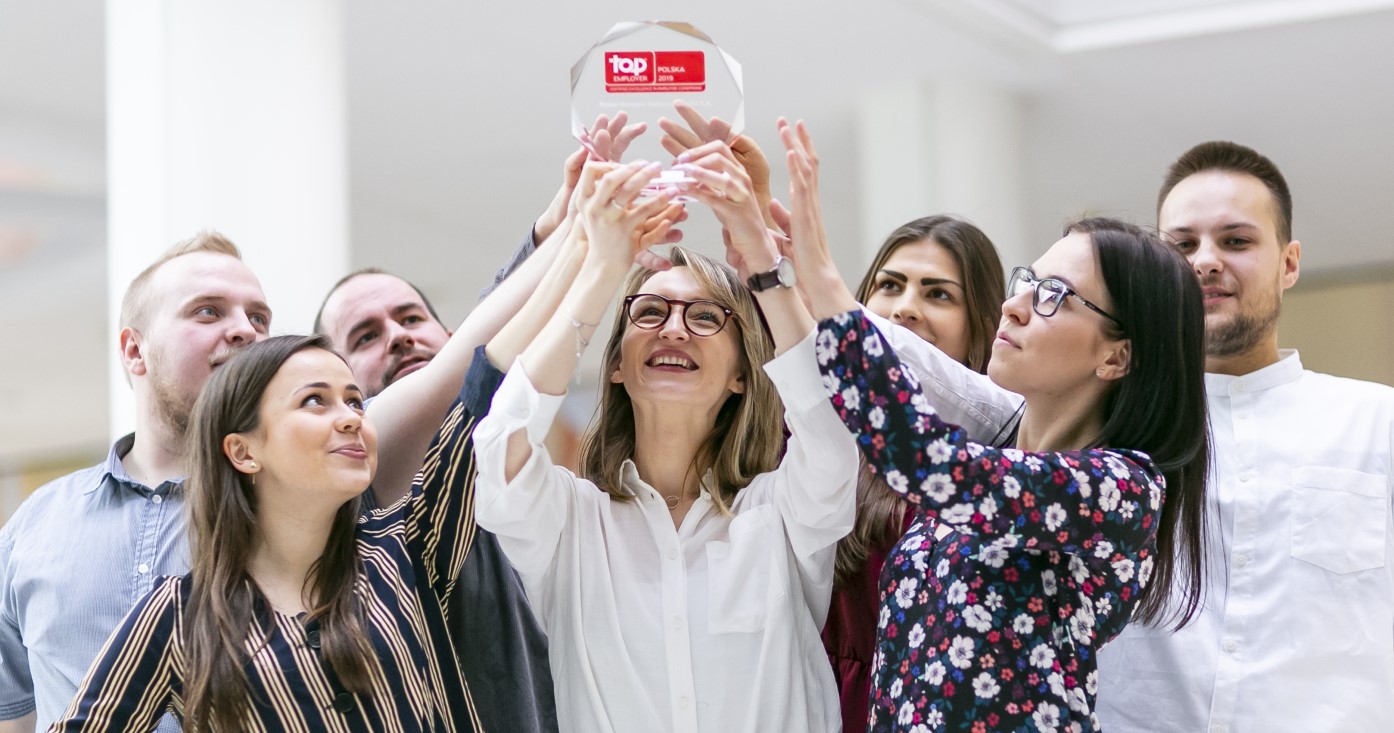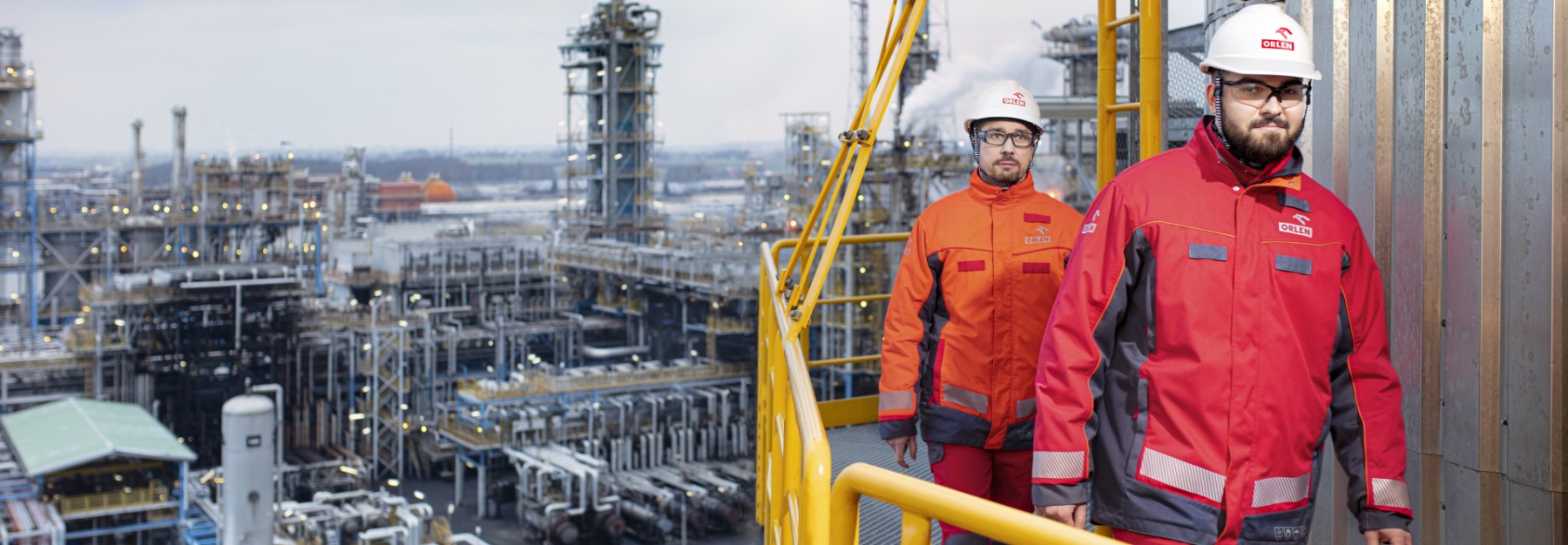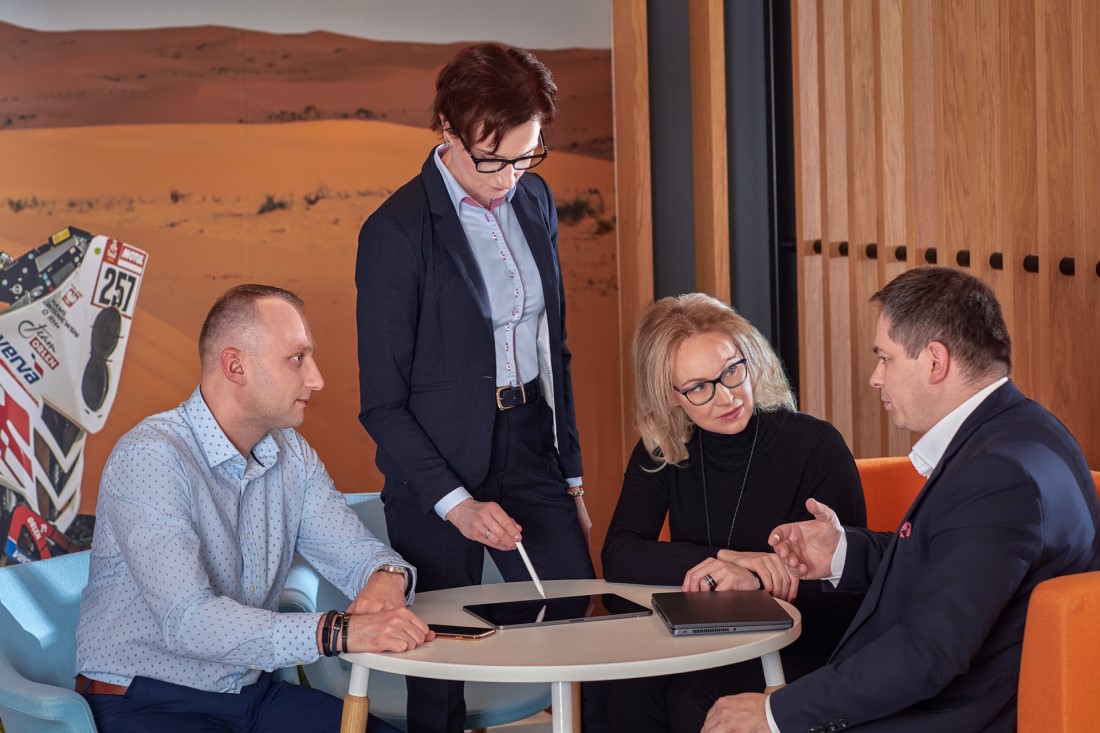In 2021, the average gross monthly remuneration (including base pay, bonuses, awards, lump-sum allowances and overtime) at the ORLEN Group was PLN 8,867.
Code of Ethics defines the values, principles of conduct and rules that set ethical standards for all ORLEN Group employees, based on a revised approach to understanding ORLEN values: Responsibility, Progress, People, Energy and Dependability, as well as the current scale or operations and operating strategy, the requirements of the ORLEN Group’s environment, and best practices in the field of business ethics. It contains provisions concerning, inter alia, respect for diversity, including fair treatment of all employees regardless of their age, gender, position, religion, nationality or beliefs, equal opportunities for personal and professional development, as well as responsibility for building an ethical, safe and friendly workplace. It also includes provisions discussing ethical and responsible attitudes towards all stakeholders, including employees, consumers, business partners and local communities. Moreover, it is a document supporting the implementation of the ORLEN 2030 business strategy.









